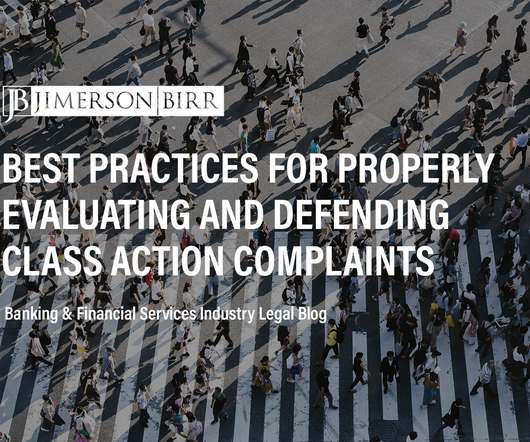Troutman Pepper Weekly Consumer Financial Services COVID-19 Newsletter
Troutman Sanders
JUNE 28, 2021
Our bank and loan servicing clients also face novel challenges affecting their industry due to COVID-19, particularly the ever-changing rules and regulations concerning evictions and foreclosures. On June 7, the Connecticut Department of Banking assessed fines against a collection agency for operating in the state without a license.













Let's personalize your content